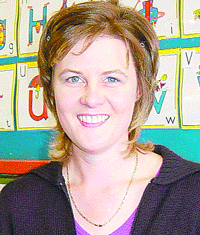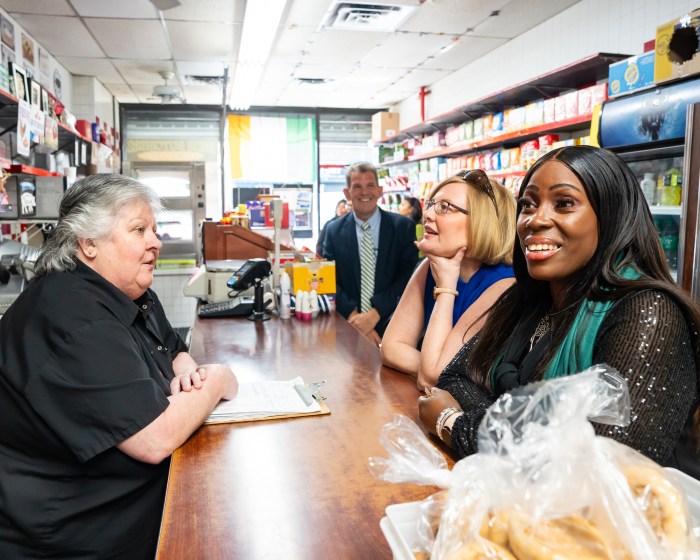Pending legislative, legal adjustments, same-sex weddings are likely in near future
B
y ARTHUR S. LEONARD
A unanimous five-judge panel of the Supreme Court of Appeal of South Africa ruled on November 30 that the “common law” definition of marriage in South Africa should be changed to state that “Marriage is the union of two persons to the exclusion of all others for life.” Responding to an appeal by Marie Adriaana Fourie and Cecelia Johanna Bonthuys, a lesbian couple seeking to marry, the court concluded that “the intended marriage between the appellants is capable of lawful recognition as a legally valid marriage,” provided that the conditions stipulated in a marriage law from 1961 are met.
The last part of the court’s statement is the catch in the decision, because it means that Fourie and Bonthuys cannot immediately marry, even though four members of the court agreed that the new common law definition of marriage should be effective immediately. (One judge thought that the court should suspend its order for two years to give the Parliament an opportunity to act in light of the court’s conclusion that current law violates the rights of gay people under the nation’s Constitution.) This is because the “formalities of the Marriage Act” cannot be complied with until certain additional steps are taken, depending upon the type of marriage the women are seeking.
The Marriage Act specifies certain vows that are stated in terms of husband and wife for all civil weddings, and the court found that the language was too specific to allow for a creative reinterpretation. Since the plaintiffs had not challenged the constitutionality of the Marriage Act directly, the court was not obliged to address that issue in this opinion. On the other hand, religious bodies authorized to conduct marriages are specifically allowed to adopt alternative verbal formulations for their marriage vows, subject to approval of the Minister of Home Affairs. Since there are some religious bodies in South Africa that might be willing to conduct same-sex marriages, it is possible that the women could seek a religious wedding and, if the minister of home affairs agrees, be married before any change has been made in the Marriage Act. That, of course, depends on the government being willing to facilitate enforcement of this judgment, which had already drawn criticism from at least one political party within hours of being announced.
The Lesbian and Gay Equality Project, a gay rights organization that appeared in this litigation as a “friend of the court,” filed a lawsuit this summer in the High Court in Johannesburg specifically attacking the gendered language in the Marriage Act, and their case, scheduled to be heard next year, could provide the vehicle for reforming the Marriage Act if the Parliament does not respond to the new decision with alacrity.
The November 30 ruling builds on an extraordinary string of successes by gay litigants, which is recited in detail by Judge Edward Cameron, author of the court’s opinion. Judge Cameron, the highest-ranking openly-gay judge in the country, made international headlines a few years ago when he spoke out as a person living openly with HIV, on the shortcomings of South Africa’s AIDS policies during an international AIDS conference held in Durban. As a law professor and writer, he was a leading voice against the apartheid regime, and was appointed to the bench after the African National Congress became the governing party. There was a striking poetic justice in his being the one to write this opinion, and he eloquently placed the issues within the context of the larger South African struggle for equality for all peoples in the introductory portion of his opinion, emphasizing that the government born out of the long struggle against racism and oppression had determined to be committed to “a conception of our nationhood that was both very wide and very inclusive. . . Having themselves experienced the indignity and pain of legally regulated subordination, and the injustice of exclusion and humiliation through law,” he wrote, “the majority committed this country to particularly generous constitutional protections for all South Africans.”
Legally, the South African courts have the authority to develop common law principles in accord with the nation’s constitution and bill of rights. The post-apartheid constitution was unique in the world when it was adopted ten years ago in specifically including “sexual orientation” as a forbidden ground of government discrimination in its bill of rights. This reflected an acknowledgment of the important role that some gay people, black as well as white, had played in the movement to free South Africa from apartheid. This provision has been used by the courts to strike down the country’s sodomy law and to require changes in a host of government policies that had failed to take account of committed gay relationships. Indeed, prior decisions brought the courts to the brink of declaring the right of same-sex couples to marry, although that question had not been previously brought directly to the appellate courts, gay rights litigants having decided strategically to proceed in incremental steps towards this ultimate goal.
Having now come to the question directly, Judge Cameron wrote that “the focus in this case falls on the intrinsic nature of marriage, and the question is whether any aspect of same-sex relationships justifies excluding gays and lesbians from it. What the Constitution asks in such a case is that we look beyond the unavoidable specificities of our condition – such as race, gender and sexual orientation – and consider our intrinsic human capacities and what they render possible for all of us. In this case, the question is whether the capacity for commitment, and the ability to love and nurture and honor and sustain, transcends the incidental fact of sexual orientation. The answer suggested by the Constitution itself and by ten years of development under it is: yes.”
Anticipating criticism that the court’s decision might be criticized as undemocratic in light of the failure of the Parliament to respond to earlier court rulings by legislating for same-sex marriage, Cameron commented: “The task of applying the values in the Bill of Rights to the common law thus requires us to put faith in both the values themselves and in the people whose duly elected representatives created a visionary and inclusive constitutional structure that offered acceptance and justice across diversity to all.” Cameron continued to write that it was likely that the public and their elected representatives would “accept also the further incremental development of the common law that the Constitution requires in this case.”
In a poignant touch, Cameron quoted key sentences from the Massachusetts Supreme Judicial Court’s same-sex marriage decision of last year, which was written by Chief Justice Margaret Marshall, herself a native of South Africa who emigrated to the United States and was appointed to the Massachusetts court by Republican Governor William Weld after a distinguished career as chief legal counsel of Harvard University.
Next steps await the government’s reaction. The Supreme Court of Appeals of South Africa is the appellate court charged with common law decision-making, but having premised this ruling on its view of the requirements of the Bill of Rights, the court left open the likelihood that the government or any other interested party could appeal this decision to the Constitutional Court, the highest appellate body on questions of South Africa’s constitutional law. (The South African courts have a permissive view of standing to appeal lower court decisions to the Constitutional Court.) The plaintiffs in this case had originally tried to appeal the trial judge’s adverse ruling to that court, but as their lawsuit did not directly challenge the constitutionality of the Marriage Act, the case did not lie within the mandatory appellate jurisdiction of the Constitutional Court, and it was directed instead to the Supreme Court of Appeal for a ruling on their demand for a reformulation of the common law definition of marriage.
The case lies within the discretionary jurisdiction of the Constitutional Court, however, and it is unlikely that the government would want to implement a potentially controversial decision of this magnitude without the Constitutional Court having its final say.
But the decision is so solidly rooted in the legal developments of the past ten years that it is unlikely the Constitutional Court would disagree with this result. That was the attitude taken by Evert Knoesen of the Lesbian and Gay Equality Project, who told South African radio on Tuesday that “we foresee that within the next 12 months or so, same-sex couples will indeed be married. The principal has been won.”


































